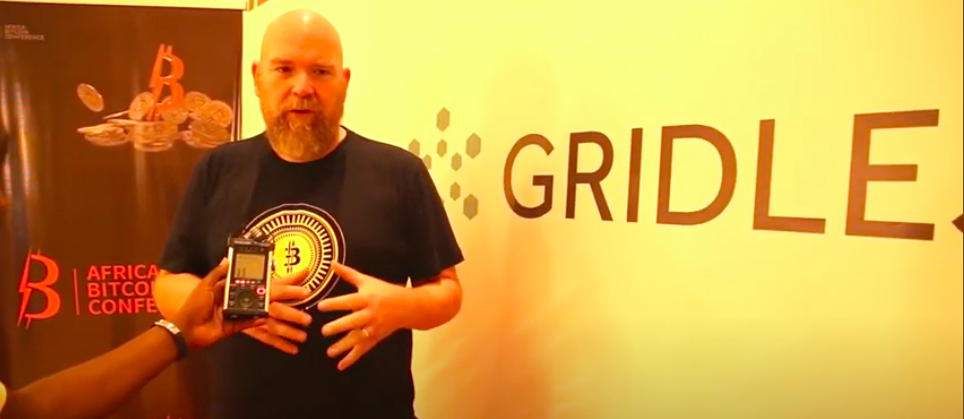On the sidelines of the Africa Bitcoin Conference in Accra Ghana early December 2022, Gridless, an East African based bitcoin mining company helping to bring new energy generation to rural communities in Africa announced a $2 million seed investment round led by Stillmark and Jack Dorsey’s Block, Inc. The company said the investment will support the further expansion of bitcoin mines across African markets.
We sat down with Gridless Co-founder and CEO Erik Hersman to talk about the startup’s expansion plans in 2023, opportunities for energy producers when it comes to Bitcoin mining as well as the state of crypto regulation in Kenya.
For context, Erik Hersman is a pioneer tech entrepreneur in Africa having cofounded leading companies such as Ushahidi, iHub; Nairobi’s tech innovation hub and BRCK, a ‘backup generator for the internet’
Erik Hersman’s new company, Gridless, designs, builds, and operates bitcoin mining sites alongside small-scale renewable energy producers in rural Africa where excess energy is not utilized. Gridless serves as the anchor tenant, financing the construction and managing the operation of data centers in rural communities where traditional industrial or commercial customers are not available.
Bitcoin mining requires high-powered computer processors in order to solve advanced mathematical equations. This process helps maintain the cryptocurrency’s digital ledger, known as the blockchain. When these math problems are solved, Bitcoin miners receive the cryptocurrency in exchange.
One of the biggest problems in Africa is that the grids are not very well connected, and often times, the grid isn’t close to communities that need energy. So you have this two part problem one is that these communities need power and the second problem is that anyone who wants to build a mini-grid in that community will need financing for that.
“So they can’t find financing easily because it takes anywhere from two to five years to find financing or even once they get the financing, the ability to build it, the community uptake of electricity is somewhat slow and this can take another five to ten years to have full capacity. So if we want to accelerate the electric electrification of the African communities, Bitcoin Mining provides this amazing, industrial off taker of power” says Erik Hersman.
This essentially means that any of the energy that’s not being used by the community is used for Bitcoin mining and that gives the reason to the energy developer to build it because they know there will be income.
Hersman says that people build these mini grids and hope the community will come online and they do. But they come on very slowly so they don’t make enough money. And then they have to charge a very high price.
“So when we come in, we take all that extra energy that nobody’s buying in the community and we buy it and then admitted it can decrease the price for that community that was around.”
Kenya’s leading power producer KenGen in 2022 announced plans to sell excess geothermal power to bitcoin miners as it seeks to diversify its revenues while reducing risks.
Erik welcomes the move by KenGen to allow Bitcoin Miners to set up and use excess energy for Bitcoin mining and compares this to Texas, home to the largest Bitcoin mining sites in North America, and fast achieving status as the undisputed Bitcoin mining capital of the world.
“There’s no reason why we can’t do the same thing in any country in Africa, whether it’s Kenya or Uganda or Ethiopia because all of them have excess energy. But not all of them have very good grids either” says Hersman.

Gridless Plans in 2023
Twitter Cofounder Jack Dorsey’s company Block, Inc led Gridless $2 million seed investment and the company wants to use the capital to expand in East Africa, West Africa and Southern Africa.
As part of the company’s expansion plans in Africa, the firm is looking for stranded energy. Meaning, energy that’s going to waste already coming from renewable sources, primarily Hydro, but also solar and wind.
Gridless believes bitcoin mining can play a pivotal role as a buyer of first and last resort in creating more sustainable energy production and increasing electrification for local communities in the region.
Green Africa Mining Alliance
At the same time, Gridless is part of Green Africa Mining Alliance (GAMA), a community of people and organizations that want to grow Bitcoin mining in Africa and help each other. Other members of GAMA include Trojan mining from Nigeria, QRB labs from Ethiopia, Big Block data center in Congo and Sukuma Ventures from Kenya.
Given that there is little mining going in Africa, part of GAMA’s goal is get more Bitcoin mining happening on the continent. This does not only secure the bitcoin network but also ensures the reduction in centralization of Bitcoin mining in North America and Europe hence further distribution across the world and Africa.
Bitcoin Regulation in Kenya
Kenya’s Central Bank has recently softened its stance on cryptocurrency and recommended the formation of a technical committee that will create laws to regulate digital assets and businesses in the sector.
Speaking on this move amid the collapse of companies like FTX, Hersman says;
“If you want to be a part of the future, you need to open up the regulation to bitcoin and maybe even crypto more generally exchanges and everything. So that it happens there because if you don’t do that, then you won’t have a piece of the future, that will go to the other countries that open things up, borders don’t matter in our world.”
Erik argues that Kenya needs to treat Bitcoin differently than crypto. He says Bitcoin needs to be seen as a commodity managed by the Capital Markets Authority. On the other hand, other cryptocurrencies should managed by the Central Bank.
READ;
Kenya Creating Legal Framework for Crypto Regulation – Central Bank
Jack Dorsey’s Block Inc Leads $2 Million Investment in Kenya Based Bitcoin Mining Company Gridless




